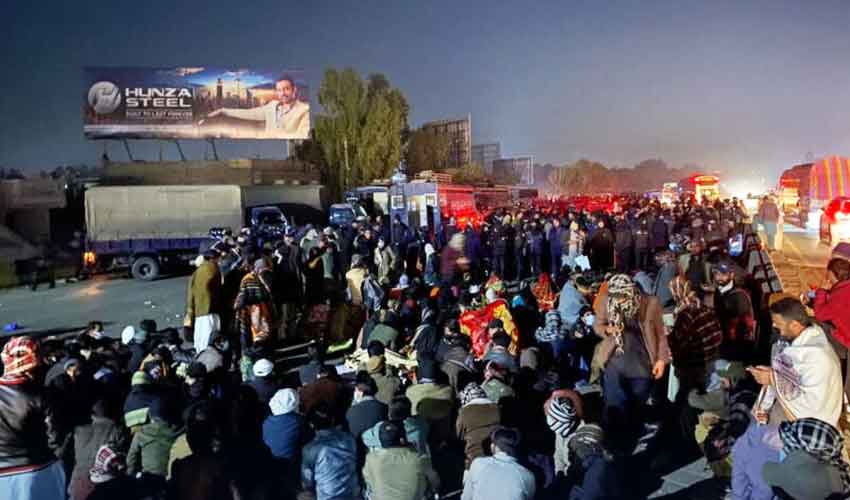Unresolved Grief of Baloch, Unanswered Questions
The recent sit-in protests by families of Baloch missing persons outside the National Press Club in Islamabad paint a stark picture of unresolved grief and yearning for justice. For years, these families have endured the agonizing disappearance of their loved ones, with scant answers from the authorities.
Baloch Identity, Shared Pain
Their anguish resonates across Balochistan, a region scarred by conflict and shrouded in the silence of unanswered questions. Instead of providing solace, the government’s response to the protest has been one of dismissal and confrontation. Establishing another camp adjacent to the families’ sit-in feels less like a solution and more like a deliberate attempt to marginalize their voices.
Blame Game and Festering Wounds
This act underscores the disconnect between the power corridors and the ground realities of Balochistan, where communities grapple with the trauma of enforced disappearances and the absence of accountability.
Both sides of the divide the Martyrs Forum and the government-backed camp – share a common thread: Baloch identity. This shared heritage amplifies the tragedy, revealing a deeper wound rooted in historical grievances and a sense of alienation from the national narrative.
The image of Baloch fighting Baloch evokes the poignant analogy of soldiers facing each other across an arbitrary border, unaware of the true enemy that manipulates them from behind the scenes. The blame game, however, offers no solace.
While the government points fingers at terrorists, the families hold state actors accountable, demanding the identification and punishment of those responsible. The lack of concrete evidence against any perpetrator fuels suspicion and perpetuates a cycle of distrust. The absence of justice becomes a festering wound, fueling further resentment and alienation.
Voices of Courage in the Darkness:
In the midst of the despair, voices of courage and empathy shine through. Journalists like Hamid Mir, Muhammad Hanif, Matiullah Jan, and Asad Toor stand against the tide of silence, raising their voices for the truth. These are the salt of the earth, reminding us that even in the darkest times, integrity and compassion can prevail.
Empty Promises and Hollow Rhetoric
Their unwavering commitment to the truth stands as a testament to the power of journalism in challenging injustice and amplifying the voices of the marginalized. Prime Minister Anwar Haq Kakar’s open animosity towards Balochs casts a long shadow over the already fragile situation.
Rewriting the Narrative
His remarks, devoid of sympathy for the suffering of both Balochs and Pashtuns, further alienate an already ostracized community. His personal history with Baloch leaders, while seemingly offering a glimmer of hope, ultimately rings hollow in the face of his current pronouncements.
Disqualification of Nawabzada Jamal Raisani
The disqualification of Nawabzada Jamal Raisani from contesting elections based on his alleged Thai citizenship adds another layer of frustration and suspicion. This decision appears more politically motivated than legally sound, raising questions about the fairness and transparency of the electoral process.
The path towards reconciliation in Balochistan demands a drastic shift in approach. Empty promises and manufactured solutions will not heal the deep wounds inflicted upon the Baloch people. Instead, sincere commitment to truth, accountability, and recognition of the suffering is needed.
Engaging with the Baloch community in a genuine dialogue, addressing their grievances, and ensuring justice for their families are necessary steps to break the cycle of violence and mistrust.


